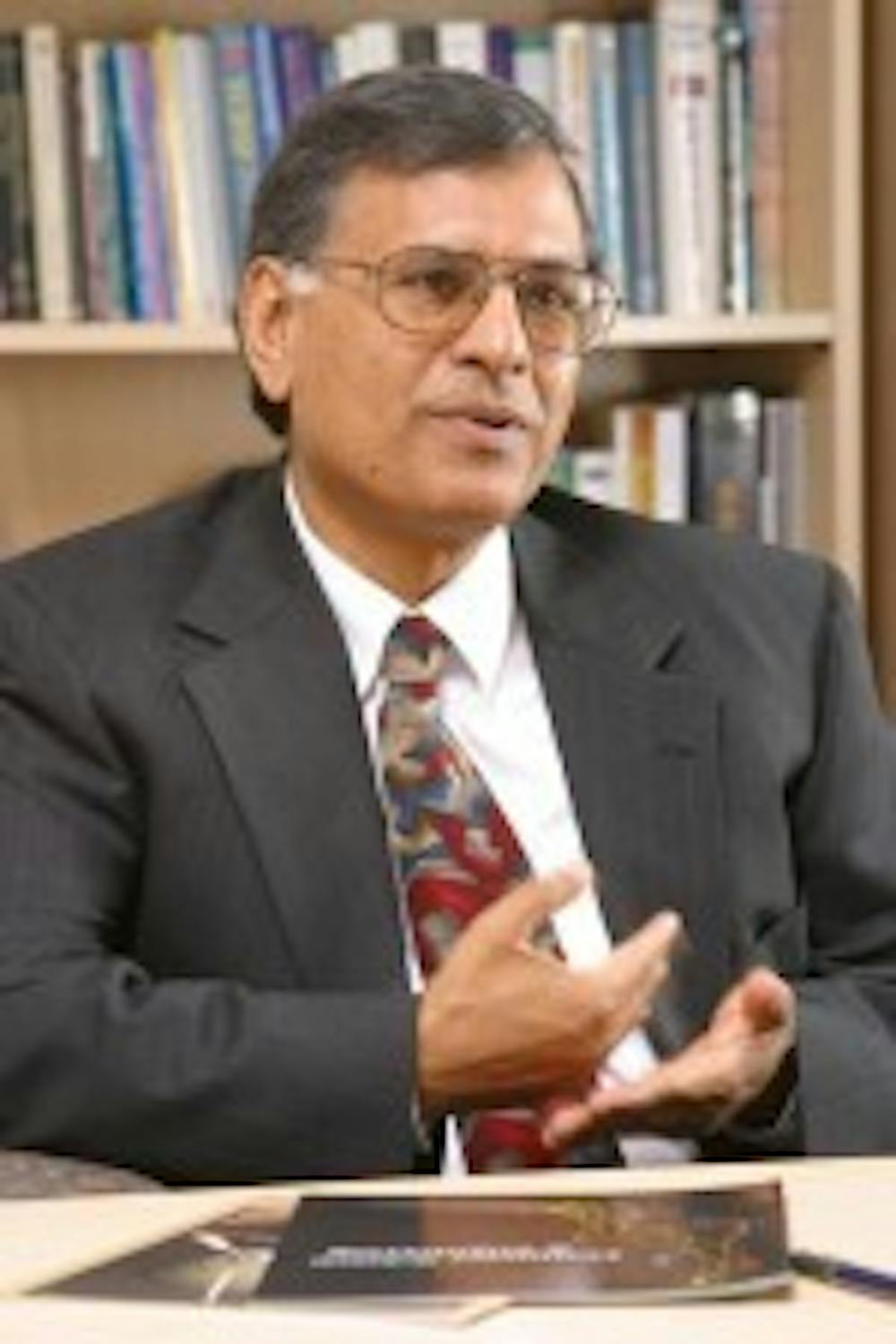SUNY Chancellor Nancy L. Zimpher announced on March 17 that she has recommended Provost Satish K. Tripathi as UB's 15th president.
The SUNY Board of Trustees must approve Tripathi's nomination, and Zimpher has asked to hold a special meeting with the board around April 1 to consider Tripathi's recommendation.
The Presidential Search Committee "unanimously and enthusiastically" recommended Tripathi for the position, according to a letter from Jeremy M. Jacobs, chairman of the UB Council and Presidential Search Committee, posted on March 17.
Jacobs has only released statements on behalf of the committee via email to faculty and on the Presidential Search Committee's website.
Zimpher named Tripathi as UB's officer-in-charge, effective immediately. Tripathi will assume all of the responsibilities and authority of UB's president.
On March 11, The Spectrum published an article on speculations surrounding the Presidential Search Committee's lack of adherence to SUNY's Guidelines for Conducting a Presidential Search.
However, a SUNY press official said that these guidelines are not set in stone for each individual presidential search.
"It was communicated to the campus community early on that the search committee would conduct a confidential process in order to attract, retain, and successfully recruit the best possible candidates," said David K. Belsky, SUNY press officer and director of new media, in an email. "The Presidential Search Guidelines are intended to be just that, guidelines, not law."
Step 10 of the SUNY Guidelines states that once finalists are selected, schools are required to schedule campus visits for each of the remaining candidates and are to publically announce the names of those left in the running. UB's Presidential Search Committee did not follow this step.
Faculty members and students alike have not supported the lack of transparency in the presidential search.
"The UB Presidential Search Committee ignored the SUNY Trustees guidelines for a presidential search in two ways: they prevented the UB faculty from electing six representatives to the committee, and they denied the entire UB community the opportunity to meet with finalists," said James Holstun, professor of English, in an email.
Holstun is referring to Step 2 in the Preliminary Steps in the Search Process Guidelines, which states that unless otherwise agreed upon in advance by the chancellor and council chair, the search committee shall consist of four members of the council (including the chair), six members of the full-time teaching faculty of the campus, one student, one alumni representative, one campus-related foundation representative, one academic dean, and one professional or support staff member.
"We can all hope that the next UB president will aspire to a more democratic and less corporate way of doing things," Holstun said. "This isn't a promising start."
Some students do not support the administration's apparent lack of concern for the student community.
"This pick indicates that the UB administration is continuing to work to privatize the university, raise tuition, and treat students as dollar signs," said Robert Earle, a fifth-year Ph.D. candidate, on the UB Reporter's website. "Moreover, this process was done in such a closed-door way that students had absolutely no say in the matter. I hope that some action can be taken to reverse this decision and democratize presidential searches in the future. Students deserve a voice; it is our education."
The officer-in-charge was unavailable for comment. Tripathi wants to respect the SUNY process and wait until the SUNY Board of Trustees formally confirms him as president at next month's meeting, according to John DellaContrada, assistant vice president for media relations at UB.
Email: news@ubspectrum.com





